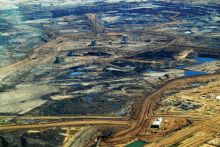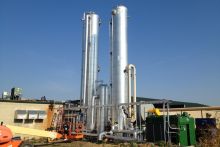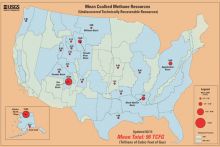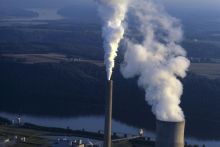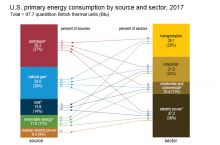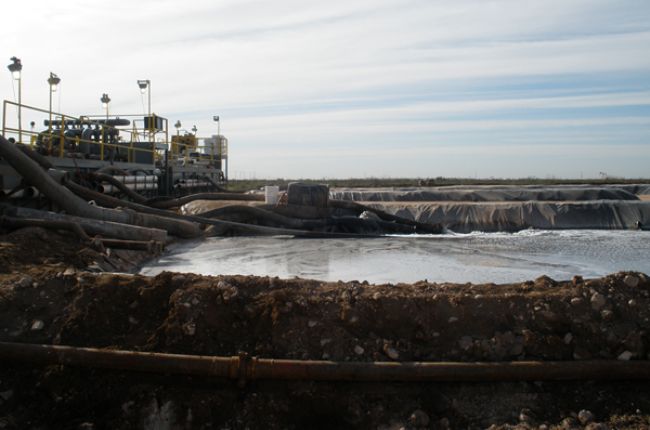
Produced water is naturally occurring water that comes out of the ground along with oil and gas
Most oil- and gas-bearing rocks also contain water. When the oil or gas is extracted from these rocks, the water comes out too. This “produced water” is a byproduct of almost all oil and gas extraction, though the amounts of produced water can vary widely in different places or over the lifetime of a single well.1 When hydraulic fracturing (“fracking”) has been used, some of the frac fluid may also return to the surface. This is sometimes called “flowback water” to distinguish it from the naturally occurring produced water that is extracted from the rock formation.2 In some cases, a large proportion of the extracted water is flowback, while in others it can be little or none.
Note: The term “produced water” is also occasionally used to describe water generated from scrubbers in power plants, extraction and processing of uranium resources, geothermal energy production, and carbon sequestration.3
What is the composition of produced water?
The composition of produced water depends on the chemistry of the rocks it has been in contact with. In the Bakken (North Dakota) and Marcellus (Pennsylvania and neighboring states) formations, produced waters can be over 10 times more saline than seawater.4 In California and Wyoming, many produced waters are much less saline than seawater.4 Produced water can also contain varying amounts of oil residues, sand or mud, naturally occurring radioactive materials, chemicals from frac fluids, bacteria, and dissolved organic compounds.1 Differences in composition affect how produced waters are treated, used, and/or disposed.5 The U.S. Geological Survey maintains a database of produced water compositions based on over 165,000 measurements across the United States.
References
1 The Water-Energy Nexus - An Earth Science Perspective U.S. Geological Survey
2 The Hydraulic Fracturing Water Cycle Environmental Protection Agency
3 Produced Waters: Overview U.S. Geological Survey
4 National Produced Waters Geochemical Database U.S. Geological Survey
5 Produced Water Management Technology Descriptions National Energy Technology Laboratory
Learn More:
- USGS Investigations of Water Produced During Hydrocarbon Reservoir Development (Factsheet), U.S. Geological Survey
2014 factsheet providing information on produced water and outlining USGS research into its treatment, use, and disposal.
- Flowback and Produced Waters: Opportunities and Challenges for Innovation (Report), National Academy of Sciences
Summary of a 2016 workshop on the reuse, disposal, and treatment of produced and flowback water from oil and gas operations
- Energy Resources Program: Oil and Gas Waters Project (Website), U.S. Geological Survey
USGS website on produced waters, including research, publications, data, and additional links.
- National Produced Waters Geochemical Database (Map), U.S. Geological Survey
USGS map-based database providing locations and data for produced water at over 165,000 wells across the United States.
- Produced Water Management Technology Descriptions (Website), National Energy Technology Laboratory
Descriptions of the many technologies used to reduce, treat, reuse, and dispose of produced water.
- Making Produced Water More Productive (Webinar), American Geosciences Institute
2015 webinar addressing the scientific and regulatory background of produced water, how it is disposed, potential options for reuse, and the environmental and regulatory challenges that influence reuse and disposal.


